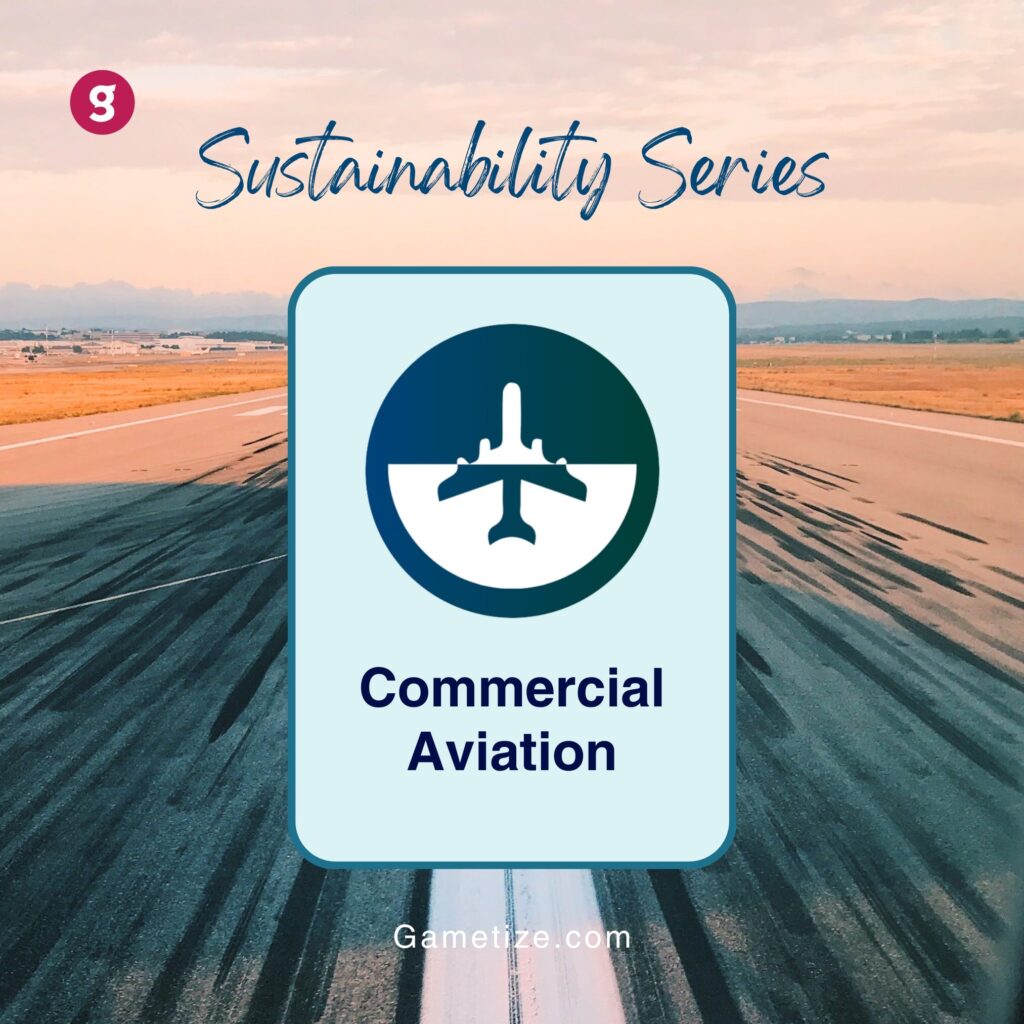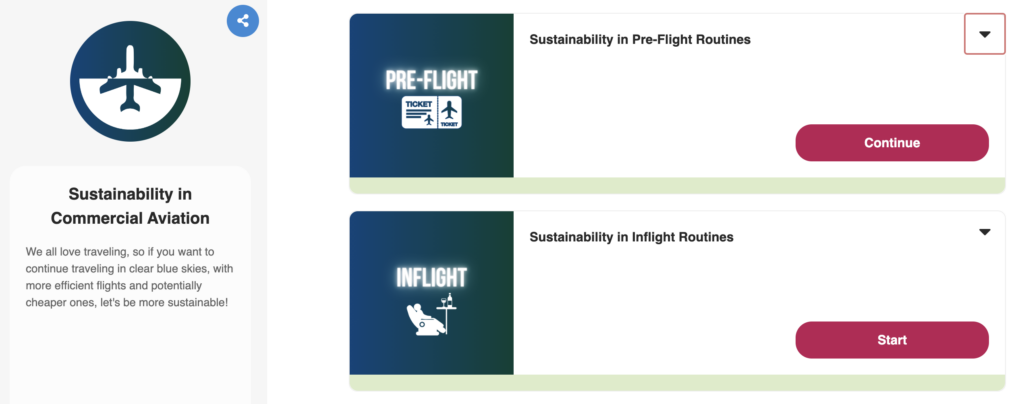Sustainability Series: Sustainability in Commercial Aviation
As the world gradually emerges from the shadow of the Covid-19 pandemic, the aviation industry is experiencing a huge resurgence. People are eager to resume their travels, both for leisure and business, and airlines are ramping up operations to meet this growing demand. Amidst the excitement of exploring new destinations however, there is a concerning trend that cannot be overlooked – the sustainability challenges of commercial aviation.
Airline passengers have not consistently made environmentally conscious choices, mainly due to a lack of motivation. This has unfortunately contributed to a shocking quantity of cabin waste produced, which in turn implies excessive weight of aircrafts – resulting in peaked carbon emissions.
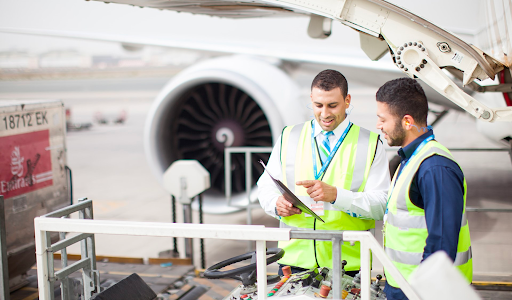
In a CNA feature, the International Air Transport Association claimed that flights could churn out six million tonnes of cabin waste next year, enough to fill about 11,700 Olympic-sized pools. Separately, the US Environmental Protection Agency has expressed concern on the transportation sector being a huge contributor to carbon emissions. With many airports being located away from city centres, passenger commutes to and fro their flights also fall into the spotlight.
Our team sought to tackle the underlying problem by educating passengers and incentivising using various methods which will be elaborated later on. In a bid to make the educational journey more engaging for passengers, we decided to gamify the experience. Our game essentially accompanies a passenger on his journey from the moment he books his flight. Along the way, the user will be guided through a series of challenges that are aimed at reducing his carbon footprint and inculcating positive habits.
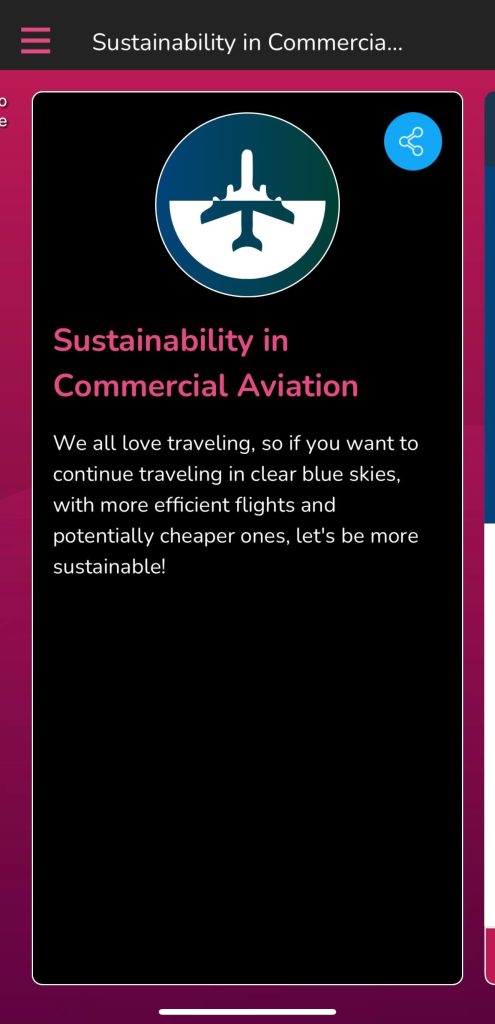
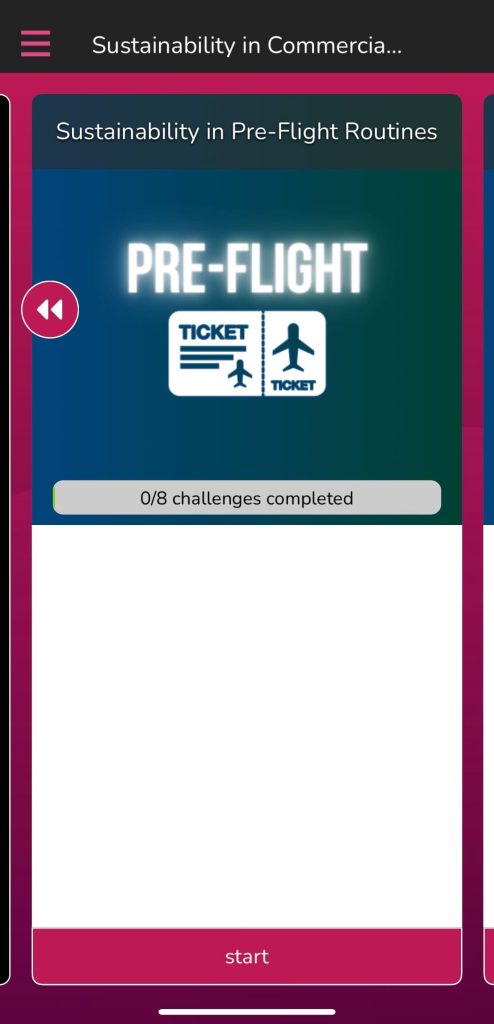
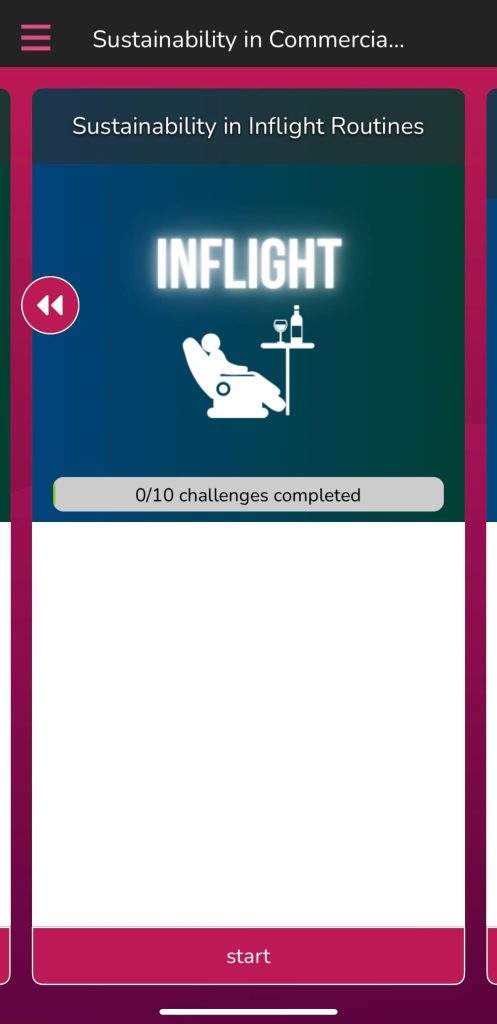
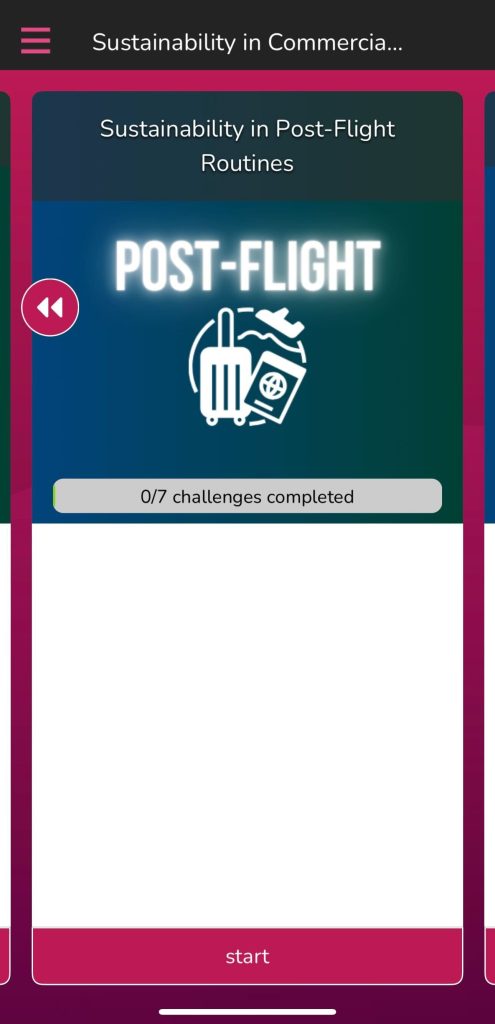
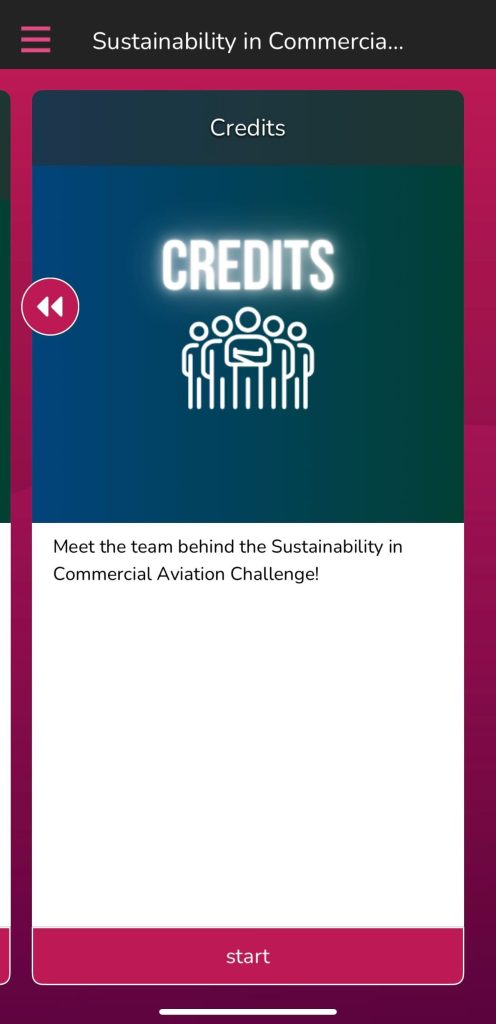
The game begins by encouraging users to pack light, while educating them on how the weight of their luggage can collectively have a significant impact on a flight’s fuel consumption and emissions. As players prepare to travel to the airport for their flight, the game also promotes sustainable transportation options such as carpooling and public transportation, emphasising once more that carbon emissions can be saved by making these choices.
As players embark on their flight to their destination, the game continues to weave sustainability into the narrative. Activities within the game educate passengers on waste minimization methods as well as ‘bring-your-own’ campaigns.
Ultimately, the success of this project will be measured by the tangible reduction in both waste and fuel consumption within the aviation industry. Users being rewarded with airline loyalty points along the way for completing certain challenges further make this a win-win situation for both players and the industry.
We acknowledge that passengers might experience inertia towards playing the game as they are apathetic towards sustainability, and may find it an inconvenience to participate in these activities. As a means of overcoming this hurdle, we will incentivise players by offering airline loyalty points for each challenge they successfully complete.

Activities are also designed to stimulate thoughtfulness and keep users engaged while they begin to build sustainable habits when travelling. On the sideline, the game may be expected to trigger some emotions of guilt as passengers reflect on their current unsustainable tendencies and strive to make a change.
The repeated mention of statistics and reflective questions that make passengers become more aware of their present behaviours helps to educate them on the gravity of climate change, and instils an urgency to act.

While air travel is not specific to people of a certain age, occupation or income level, we expect our player profiles to be diverse, but largely within the categories of adults travelling either for leisure or business purposes. Certain challenges are also child-friendly, making them appropriate to be played by families travelling for vacation.
We expect leisure travellers to be more receptive to our game, as they might be more motivated to protect the environment and preserve it for future generations. With that said, we would hope for this target audience group to help amplify the impact of our game by sharing their game experience with others should they find it meaningful.
In our project, we have employed innovative methods to engage players while addressing the issue of sustainability. Many people grapple with cognitive dissonance regarding sustainability efforts, as seen in a recent OCBC Climate Index study among Singaporeans. Despite general awareness of environmental concerns, individuals often hesitate to embrace sustainable behaviours and habits, possibly due to a lack of guidance, or uncertainty surrounding their impact.
Our approach, using Gametize, helps players identify actionable steps to make a difference. The game also dispels the misconception that small efforts are futile by providing statistics to help reshape perceptions. This feature also allowed our team to learn more about sustainability within the commercial aviation industry concurrently.
During the conceptualization phase, we acknowledged passengers’ roles as the main catalysts for change, in an industry with tight regulations, and generally slower adoption due to high costs. By altering passengers’ mindsets and actions, we also intend to send a clear signal to airlines that sustainability efforts are worth the investment. This project has taught us to consider various stakeholder perspectives while tackling complex issues, ensuring the most effective approach at the end of the day.
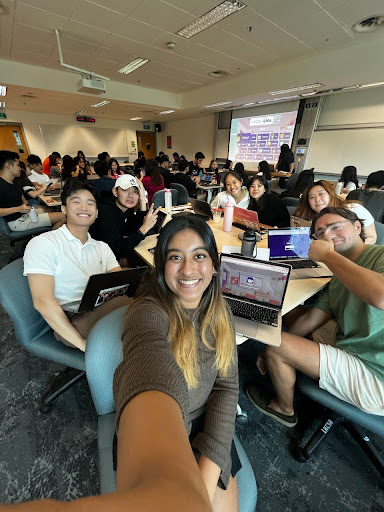
1. Play the game first.
2. Use the Template game for your own initiatives.
Credits: [AY2023/24] G3 Team 1 – Anna Lim, Cheryl Devan, Lin Hao, Mitchell Lee, Nicholas Ng, Rachel Heng & Pontus Givfas

